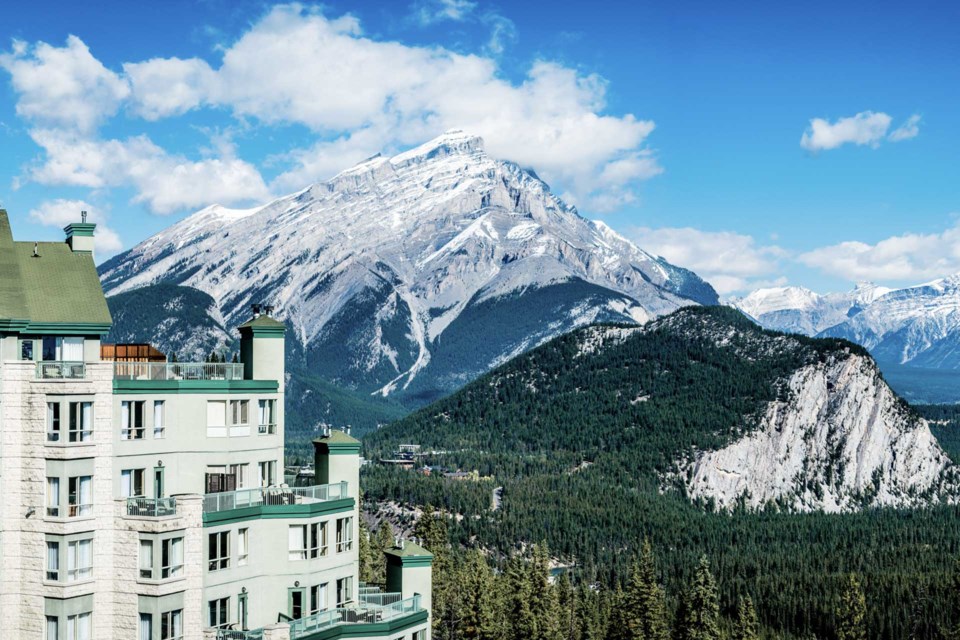While weather-related disasters plagued Alberta and British Columbia over the last few summers, hotel investors and developers continue to show confidence in the sector’s potential.
In late July, wildfires devastated the townsite in Jasper, Alta., destroying some hotels and resorts, while fires caused major damage and disruption in B.C.’s Interior last summer.
Even in the wake of significant losses, hotel transactions in both Alberta and B.C. remained robust, with 2023 seeing $390-million and $353-million in transactions respectively, according to Colliers Hotels.
“Year to date, volume in those regions is down slightly, but we don’t see that as a concern. It’s more just a lower share given strong activity in Ontario,” says Colliers Hotels managing director Robin McLuskie.
Transaction volumes can vary considerably from year to year and are influenced by different factors. While Ms. McLuskie says extreme weather events may have short-term effects on hotel performance and transactions, she believes performance will bounce back. “Investors are focused on long-term strength in these markets so these short-term shocks aren’t as impactful as one might think,” she says.
Curtis Gallagher, principal and Canadian hospitality lead for commercial real estate company Avison Young, also sees continued strength for hotel transactions in Western Canadian resort areas, pointing to a major transaction involving real estate company Oxford Properties Group Inc. acquiring the Rimrock Resort Hotel in Banff, Alta. Mr. Gallagher says transactions involving these types of advanced buyers demonstrate the strength of the hotel sector.
Despite worsening wildfire seasons in Western Canada, developers are still building new hotels. By the second quarter of 2024, a record 59 hotel projects – representing 8,439 rooms – were in B.C.’s construction pipeline, up from 52 hotels during the same period one year prior. On the other end, Alberta had 18 hotel projects – representing 1,822 rooms – that started development as of the second quarter of 2024, the same number as one year prior, according to hotel analyst Lodging Econometrics.
Although investors remain optimistic about the market, hotelier groups report that wildfires have already begun to impact tourism, with some areas struggling to attract visitors. Ingrid Jarrett, president and CEO of the British Columbia Hotel Association, says there has been little to no smoke in the province this summer due to there being fewer fires that are in more remote locations. However, she acknowledges that visitors have a different impression. “There’s so much media around these climate incidents that people are increasingly hesitant about travel,” she says.
Nicole Nguyen, senior vice-president at CBRE Hotels, says Jasper has likely lost the balance of the year. And while hoteliers will be covered by insurance, they won’t be able to immediately reopen their doors. She says the unknown for next year is whether Parks Canada will restrict the number of visitors and whether tourists will want to return immediately or wait a couple years before coming back.
In B.C., late summer wildfires have shifted occupancy patterns around, says Ms. Jarrett. “August used to be the big month … we’re now seeing weddings, sporting events, big golf tournaments move to September, July and June.”
Natural disasters aren’t the only issues affecting the Western hospitality market. The economy and the after-effects of the pandemic are factoring into investment and travel patterns, too.
Tracy Douglas-Blowers, CEO of the Alberta Hotel and Lodging Association, points out that Alberta isn’t seeing a lot of new inventory coming into the market because of high interest rates, inflation and financing difficulties. Ms. McLuskie also says hotel transactions happening in the West are dominated by domestic, rather than international capital.
“There’s a mix of full-service and select-service [hotels], but I would say select-service is the most popular trading activity. Those have strong margins and there are buyers out there for that,” she adds.
Select-service hotels target customers looking for affordability and may offer a breakfast room or a limited-menu restaurant, a small pool and a small meeting room, whereas full-service hotels may be more pricey, have a full restaurant and other luxury or conventional offerings.
While there is foreign interest in the major B.C. and Alberta markets – such as Vancouver, Victoria and Banff – domestic purchasers with capital that have been sitting on the sidelines since the pandemic are doing most of the transactions, says Ms. McLuskie. “A lot of foreign groups want that trophy-large listing. They’re not going to be investing in that Holiday Inn Express on the side of the highway.”
Despite the investment popularity of the select-service market, Ms. Jarrett says studies show full-service hotels capable of attracting leisure, business and conferences weather economic difficulties better.
“What is missing in many markets and what the consumer is looking for is something a little more personal,” says Ms. Jarrett. “That’s why we’re seeing boutique properties being built now.”
Hotel associations in B.C. and Alberta are hoping for the development and promotion of new tourist destinations that exist outside the crowded ski mountains and Interior hot spots. Ms. Douglas-Blowers says Alberta has a new tourism destination plan designed to showcase parts of the province outside the mountain parks, such as dinosaur artifact hot spots in Drumheller and Grande Prairie.
“There are lots of destinations we would like to see cultivated and that the government’s tourism strategy contemplates investing in and growing,” she says.




